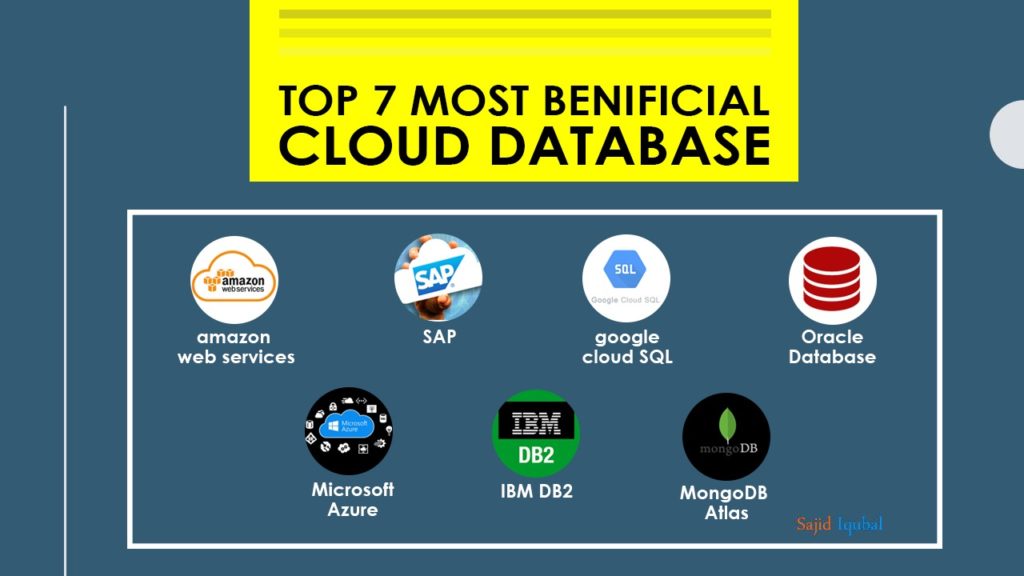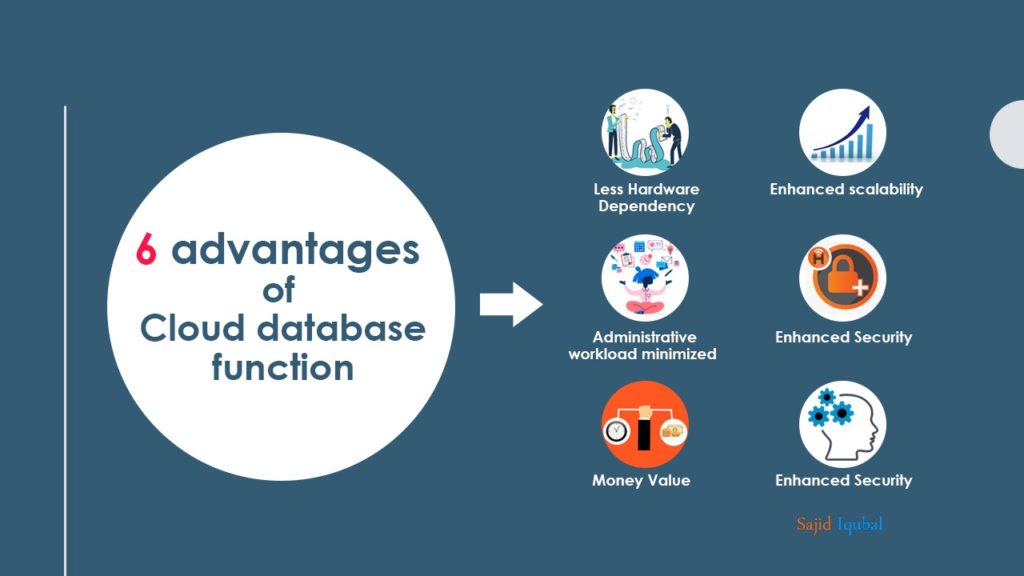As you might be knowing databases are just an essential component of cloud services just like common IT operations. Whereby, there is a number of ways by which data can be stored for various database types, and there may be chances that you will need to account for different versions. Cloud-based databases allow users to store, retrieve, and manage their unstructured structured, and semi-structured data through a cloud platform that is accessible over the web. Cloud databases are also regarded as a database as a service or DBaaS as they are sometimes offered as a managed service.
Let’s have a view about Database-as-a-Service (DBaaS)
A DBaaS is a cloud-based database service that manages the underlying database infrastructure and cloud resources. This enables enterprises to benefit from cloud computing and frees workers to concentrate on other tasks. DBaaS helps companies to start up quickly with smaller businesses, without the need of a variety of experts, as DBaaS can be set up rapidly in many cases with only a few clicks.
Although cloud databases provide substantial benefits in comparison with conventional implementations, traditional architectures with cloud systems should sometimes be combined. Cloud databases, however, provide any customer with a personalized high-performance platform for a relational database powered by and supported by MySQL-specialized engineers, with an essential solution. Cloud databases are ideally designed for consumers who aim to build their software without being hindered by infrastructure.
Cases of Cloud database
The IT organization deploys an on-demand database from a collection of supporting databases, which may include relation and non-relation databases, with a DBaaS solution that enables end-users (developers and DevOps). The IT organization may set up DBaaS to support particular releases of these software titles and may limit additional configurations that can be offered by specific users. For example, developers can only provide limited memory size databases using conventional disks while DevOps can provide SSD’s with higher capacity servers. Finally, an IT company should create rules for standard database operations, such as backups, DR, and security policies to ensure data management.

Like other cloud technologies, it is important to understand that DBaaS consists of two key users:
- The cloud management and maintenance
- The end-user who usually uses the cloud, developers, and DevOps tools
Using a platform like DbaaS that includes numerous database titles and a number of different configuration options an end-user will usually get benefits when accessing the DBaaS system.
DBaaS solves many of these problems, in particular supply and cost problems. With a few taps, you can easily set up a company class database. For large corporations as well as SMEs and start-ups with smaller budgets, DBaaS offers a cost-effective solution. Small startups can spawn self-service servers but can extend capacity according to their needs or as the need increases. Also, companies with vital data and high-speed reporting tools and OLTP systems are switching to DBaaS because it can quantify demand. Because of the cloud that enables duplication of records across various geographic locations, they don’t need to stress with regard to accessibility and security.
6 Advantages of Cloud database function

Shifting to the cloud can be incredibly helpful today because of the many legacy advantages. Some are as follows:
- Less Hardware Dependency – Companies can now spend less dependency on hardware and resources as well as IT costs with cloud services providers which cover maintenance and infrastructure aspects. Complications and disputes are often fewer that often prevent growth.
- Enhanced scalability – DBaaS facilitates smooth and seamless scalability over peak periods or before major launches with tight timescales. This is a great advantage for growing businesses that might not have the budget and money for local infrastructure.
- Administrative workload minimized – A cloud-hosted database is mostly self-managed and does not remove a database administrator, but it does remove redundant features that normally take time and effort. This permits a DBA to concentrate its time on major issues.
- Enhanced Security – It is your responsibility to seriously think about the protection of your cloud database if you run your databases on in-house servers. You need to ensure that your database is equipped with the current digital threats, an updated kernel, and other essential applications. But in fact, most businesses either don’t do or don’t. This is perfectly possible. Leave the cloud company databases and you can purchase some peace of mind for yourself.
- Money Value – No running expense concerns or expensive updates are just the tip of the iceberg in cloud databases. Many DBaaS solutions are currently available in different configurations, making it simpler for businesses to pay just for what they use.
- Discover the latest technology – Businesses don’t have to think about money-shelling on the procurement of new software, because the upgraded infrastructure is the cloud vendor’s headaches. Companies do not even need to employ dedicated workers for preparation and on-boarding.
Here are the Top 7 beneficial cloud databases
1. Amazon Web Services
Amazon provides both NoSQL and relational databases with a wide variety of cloud computing services. In the case of either Oracle, SQL, or MySQL server instances, the Amazon Relational Databases Service runs. Amazon SimpleDB is mostly built for managing lower workloads. Amazon DynamoDB is the NoSQL (SSD) database that can duplicate workloads in three separate zones of access automatically. Amazon DynamoDB is a database that can duplicate workloads automatically through three separate zones of access to NoSQL, which is a Solid State Drive – SSD.
2. SAP
SAP, the company’s giant offerer, also provides a HANA cloud database platform to supplement an organization’s on-site database resources. Sybase is one of SAP HANA’s main database resources, which is available in the AWS cloud.
3. Cloud SQL by Google
There are two key items on this database service that are Cloud SQL, which defines a relational database, and a BigQuery analysis tool, which can query large groups of data stored in the cloud.
4. Oracle Database
Oracle Database provides businesses with cloud-based database technology. The Generation 2 range has continuously improved performance with extensive management and security controls despite its first detailed bid. In case any technological challenges or queries occur, data migration is protected by a dedicated solution and near customer service.
5. Microsoft Azure
Microsoft Azure is a cloud computing platform for VM development, creation and operation of the site, smart customer apps, and XML web services. At this time, it boasts in about 55 areas more than any other cloud supplier and is the largest and best global infrastructure. One huge factor that needs to be taken into account is that Microsoft provides the greatest selection of applications that a modern organization today needs. This helps you to build an enormous ecosystem with the same roots and only one place to respond to any questions or problems.
6. IBM DB2
This is a relational database that provides advancing transaction and warehouse workload management and analysis capabilities. IBM DB2 offers high-performance, user-friendly insights, data availability, and reliability and is supported in Linux, UNIX, and Windows. It has however less regional choices, which depends on your development project/s and can affect the performance and compliance requirements.
7. MongoDB Atlas
MongoDB Atlas is a popular NoSQL open source database, providing powerful skills in scaling, sharing, and automation. Another advantage is that most developers can speed up the process without keeping a DBA hand via continuous delivery models. On the negative side, certain applications require the functioning of SQL databases, which would immediately delete MongoDB Atlas.
Final Thoughts
Cloud computing provides streamlined technologies for commodity data storage and computing time. Cloud databases can be run independently by users with one of the two deployment models which is a virtual machine image, or by the purchase of cloud-based services. With an efficient cloud database system, the development cycle will probably extend while saving valuable money and energy. You can get your desired cloud database for your company and can store your data securely and manage that properly.